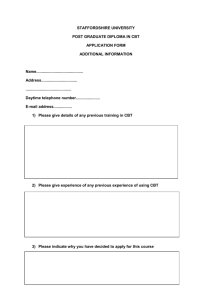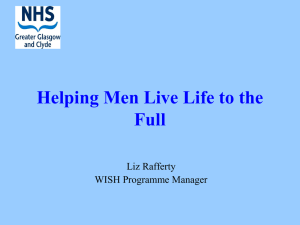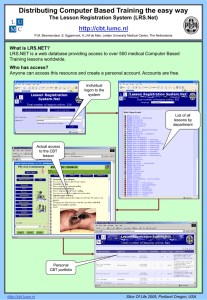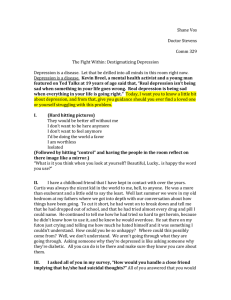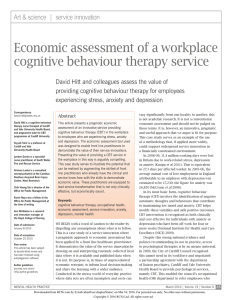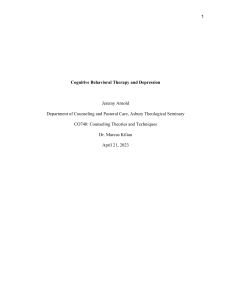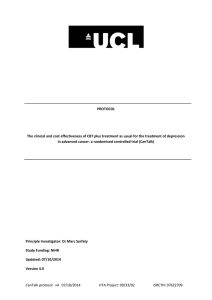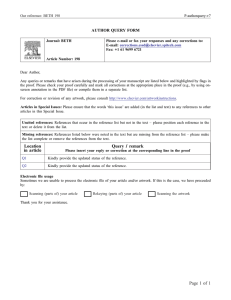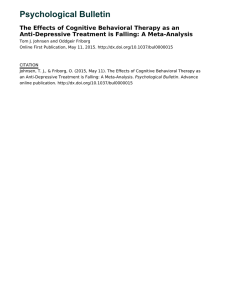PRE-GROUP INDIVIDUAL CLIENT INTERVIEW Orientation Form REVIEW CLIENT’S CHART
advertisement
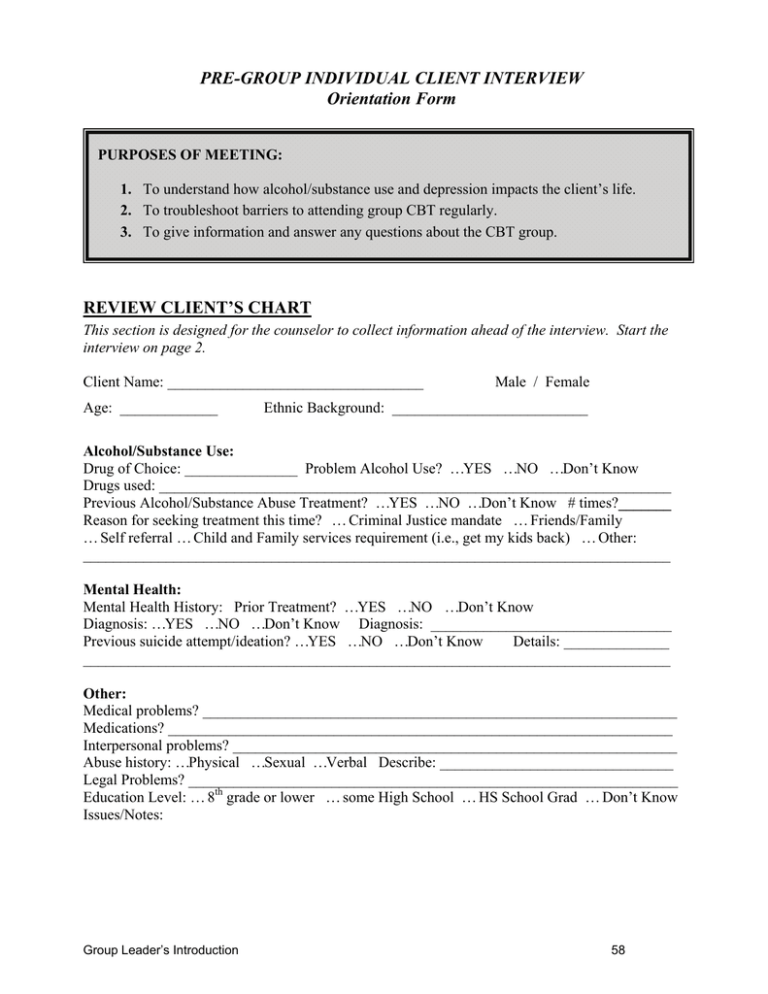
PRE-GROUP INDIVIDUAL CLIENT INTERVIEW Orientation Form PURPOSES OF MEETING: 1. To understand how alcohol/substance use and depression impacts the client’s life. 2. To troubleshoot barriers to attending group CBT regularly. 3. To give information and answer any questions about the CBT group. REVIEW CLIENT’S CHART This section is designed for the counselor to collect information ahead of the interview. Start the interview on page 2. Client Name: __________________________________ Age: _____________ Male / Female Ethnic Background: __________________________ Alcohol/Substance Use: Drug of Choice: _______________ Problem Alcohol Use? …YES …NO …Don’t Know Drugs used: ____________________________________________________________________ Previous Alcohol/Substance Abuse Treatment? …YES …NO …Don’t Know # times?_______ Reason for seeking treatment this time? … Criminal Justice mandate … Friends/Family … Self referral … Child and Family services requirement (i.e., get my kids back) … Other: ______________________________________________________________________________ Mental Health: Mental Health History: Prior Treatment? …YES …NO …Don’t Know Diagnosis: …YES …NO …Don’t Know Diagnosis: ________________________________ Previous suicide attempt/ideation? …YES …NO …Don’t Know Details: ______________ ______________________________________________________________________________ Other: Medical problems? _______________________________________________________________ Medications? ___________________________________________________________________ Interpersonal problems? ___________________________________________________________ Abuse history: …Physical …Sexual …Verbal Describe: _______________________________ Legal Problems? _________________________________________________________________ Education Level: … 8th grade or lower … some High School … HS School Grad … Don’t Know Issues/Notes: Group Leader’s Introduction 58 Note to Counselor: Use this information as a guide. Spend more time on sections that are more relevant to the client and less time on areas that are less important. Each section is meant to be brief and if the client wants to talk more than the time allowed, you can encourage the client to bring his or her concerns to the group or ask the client to talk with their individual counselor. For example, you can say “I’m glad you brought that up and I think CBT can help with those concerns. In the interest of finishing this session on time, would you be willing to bring those ideas up during our group?” 1. Welcome and introductions (2 min) Hi and welcome to the CBT group. My name is ____ and I am one of the counselors that will lead this group. The purpose of today is for us to get to know each other, to give you information about the CBT group, and to give you the opportunity to ask any questions you may have about the group. I’ll be asking you some questions and taking notes today, but I want to keep this informal, so feel free to ask any questions you have as we go along today. How does that sound? 2. Current reason for treatment (5 min) I’ve had a chance to review your chart, so I have some idea about what led you here. (Briefly and specifically summarize your understanding so the client can correct or elaborate on what you say.) I understand that you came to treatment because _____________and that your goals are to_______. Is that correct? 3. Alcohol/Substance use (5 min) I understand that your drug of choice is ______________? Is that correct? I’d like to understand more about what you like and dislike about using (drug of choice). That will help me understand your alcohol/ substance use more. What do you like about (drug)? How about what you don’t like? Likes Group Leader’s Introduction Dislikes 59 How many days has it been since you last used (drug)? _____ Days What has helped you to stay clean/sober? (reinforce healthy behaviors) 4. Depression (5 min) Tell me more about when you’re sad or depressed. What are you like? How do you act, think, and feel differently? (assess severity and impact on functioning) Were things ever so bad that you thought about hurting yourself? YES …NO …Don’t Know If YES, assess severity and write down details about past attempts (e.g., where, how, etc.). 5. Past treatment history (5 min) Have you ever been in alcohol/ substance use or depression treatment before? Alcohol/substance use treatment YES …NO Depression treatment YES …NO In general, what were some of the things you liked or found most helpful about past treatment? What did you dislike or find least helpful (troubleshoot any misperceptions they may have about the group)? Group Leader’s Introduction 60 6. Orientation to Group (5 min) We will talk in more detail about the CBT group during the first session, but let me highlight a few things and see if you have any questions. (Review handout) This group will be a commitment. What might get in the way of you attending the group? [Generate ideas and solutions to address these barriers.] Barriers Solutions discussed 7. Summarize (3 minutes) (say summary here about what was discussed such as treatment goals, likes/dislikes about substance use, depression symptoms, things the client would like to change, motivators and barriers to treatment, etc.) Do I have that right? Did I miss something? 8. End the meeting Thank you for sharing your experiences with me today. It helps me understand your situation better. I am glad that you have joined the group and I think it will be helpful to you. (Build hope for the client) Do you have any questions before we end today? Remember that you can call me if you have any questions before the group starts. You will join the group on [date]. The group will be on [day, time, and location]. Notes to group leader: Dealing with clients who report no/little depression Prevention: Have you ever been more depressed than you are now? The same skills that you will learn in group have been used in depression prevention program. It is possible that learning new tools will help you to avoid getting more depressed in the future. x Dealing with clients who don’t know what they will get out of the group or don’t think it will help What might your mood be like if you don’t go to the group? What might your mood be like if you go to the group? This kind of treatment has helped others in the past, is it possible that it will help you? Would you be willing to give it a try? x Dealing with clients with strong cravings What has helped you in the past? For example, you’re not using right now even though you have cravings, what are you doing now to accomplish that? (Ask about client’s social support, schedule, and focus on going a day at a time – e.g., What will get you through your cravings until your next appointment at the clinic?) Group Leader’s Introduction 61

